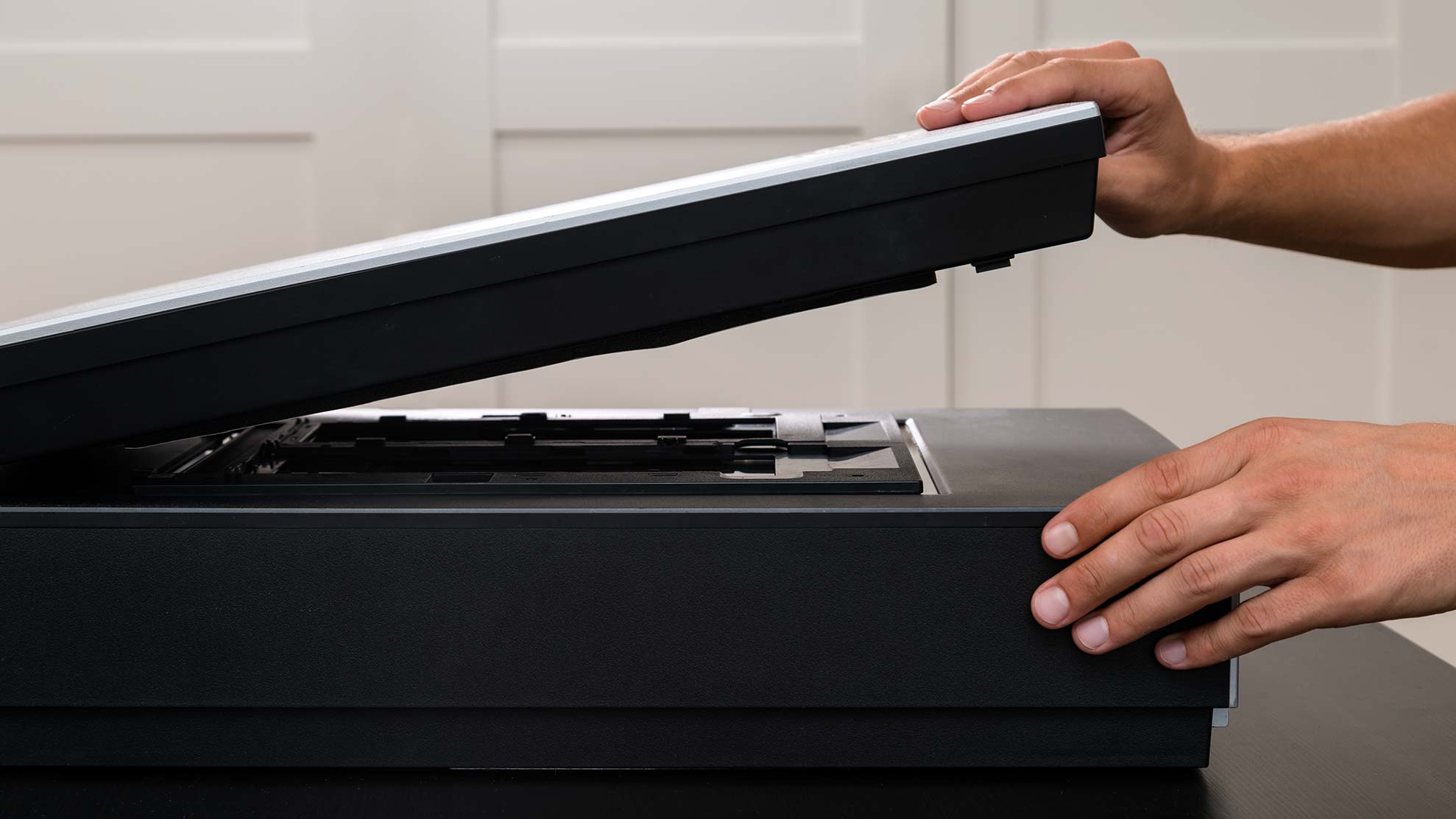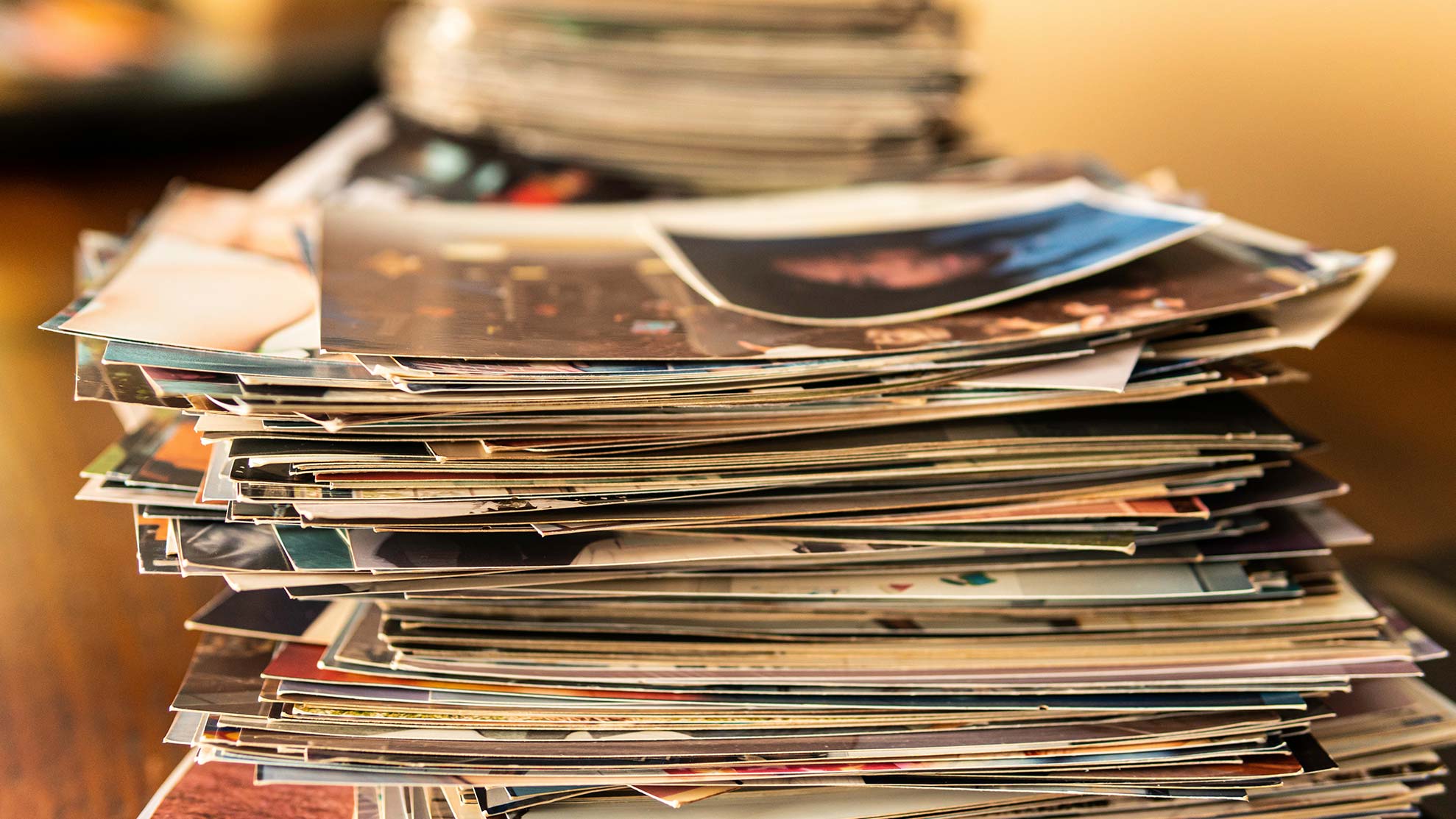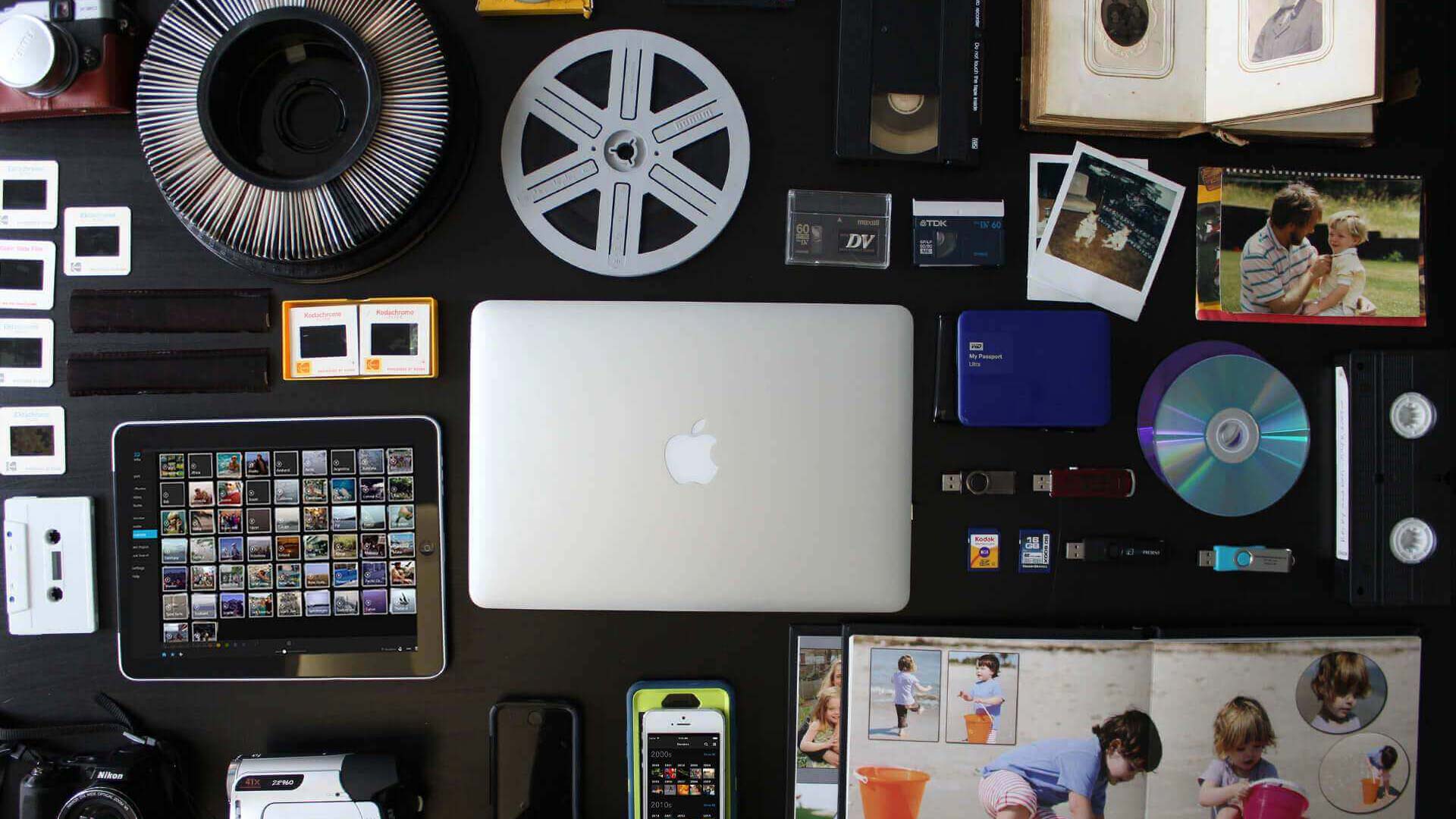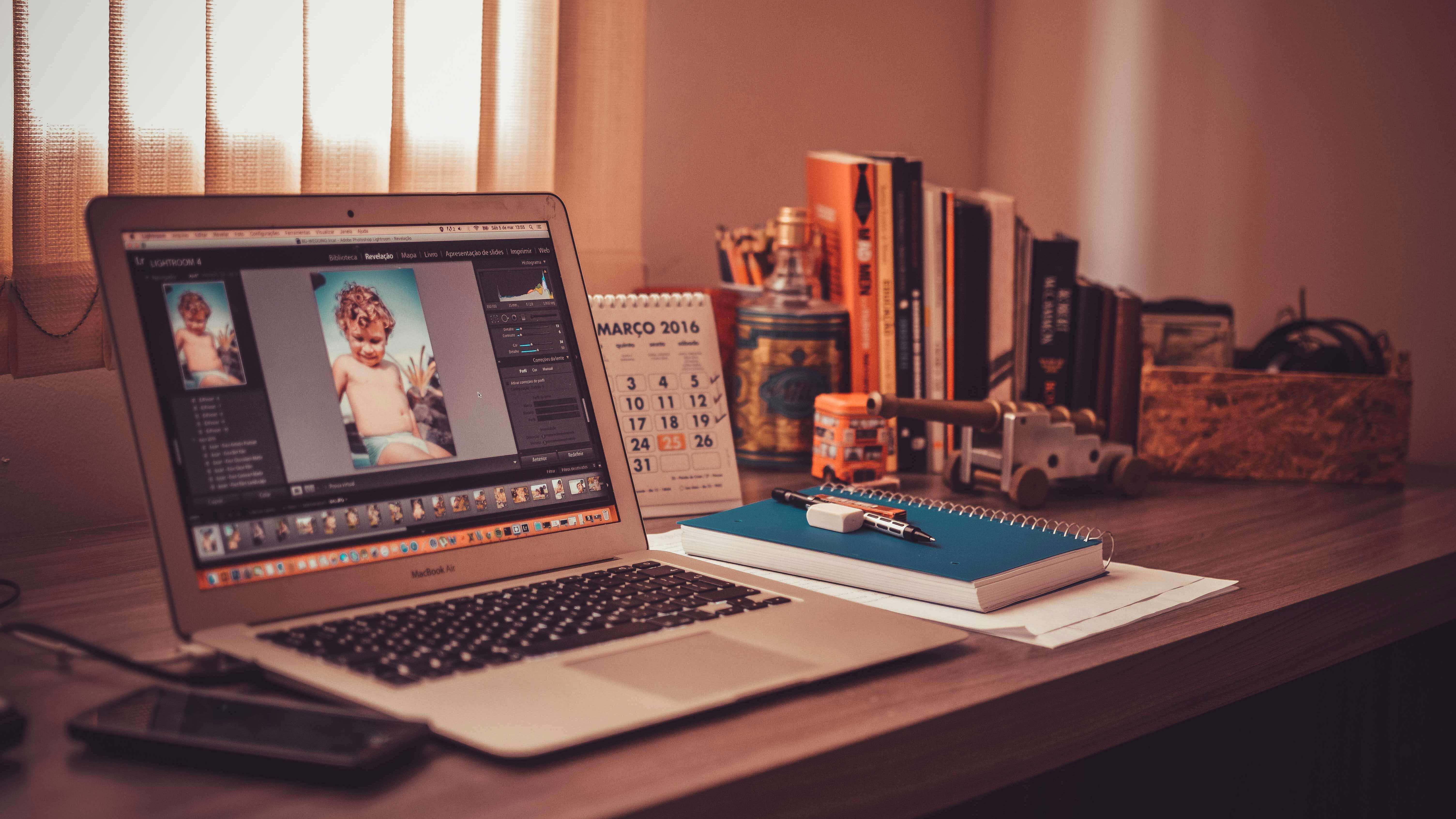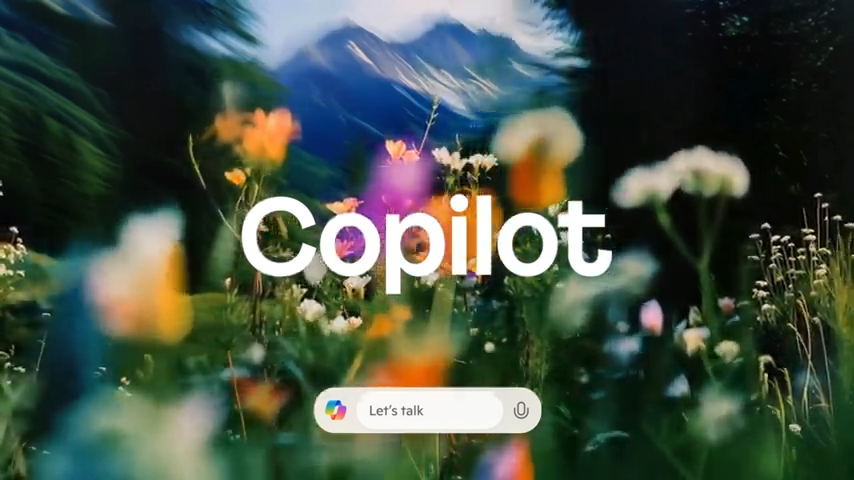How to digitize photos, negatives and film slides
The best ways to digitize and preserve your old photos, negatives, and film slides
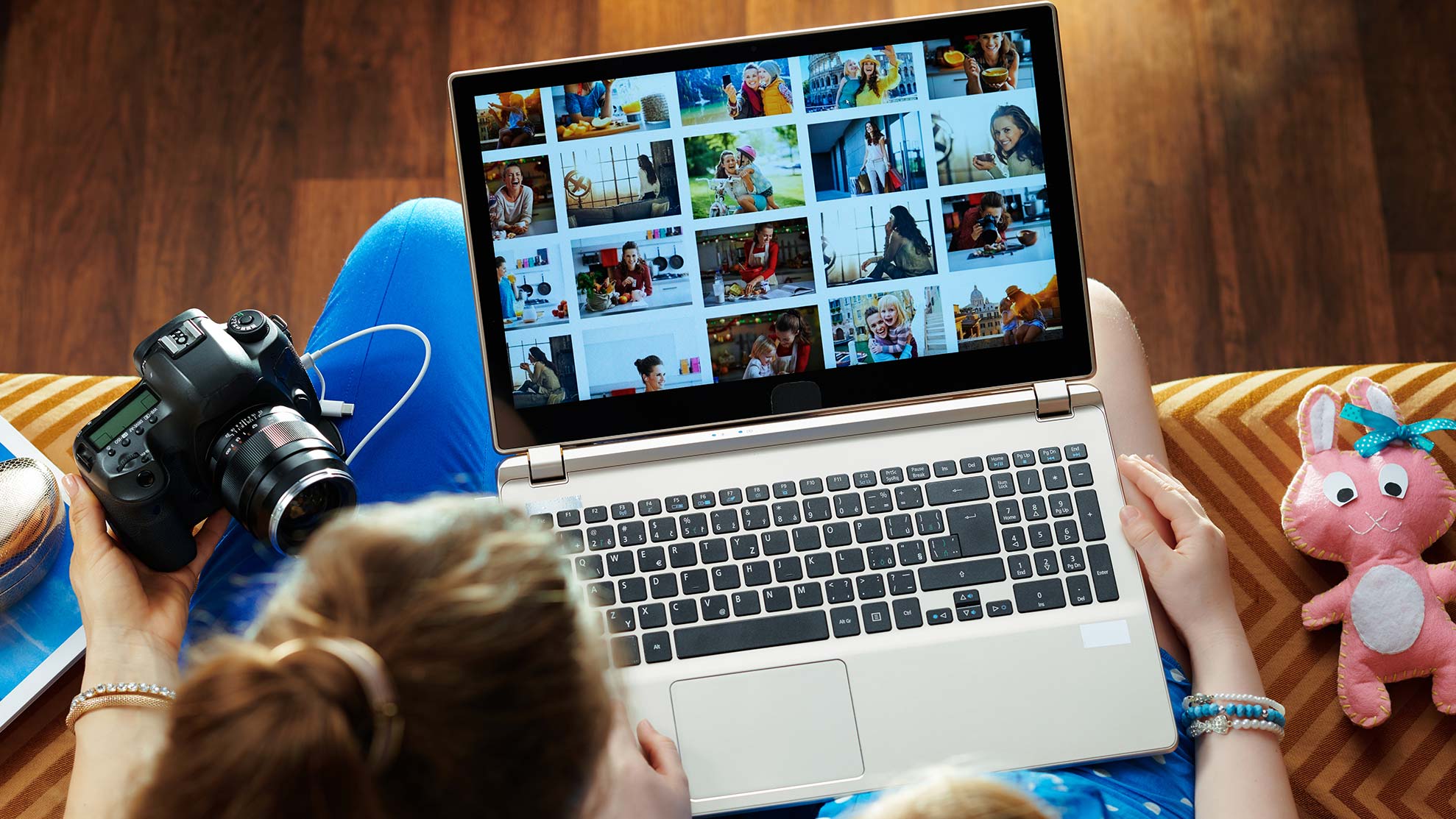
Here at Tom’s Guide our expert editors are committed to bringing you the best news, reviews and guides to help you stay informed and ahead of the curve!
You are now subscribed
Your newsletter sign-up was successful
Want to add more newsletters?

Daily (Mon-Sun)
Tom's Guide Daily
Sign up to get the latest updates on all of your favorite content! From cutting-edge tech news and the hottest streaming buzz to unbeatable deals on the best products and in-depth reviews, we’ve got you covered.

Weekly on Thursday
Tom's AI Guide
Be AI savvy with your weekly newsletter summing up all the biggest AI news you need to know. Plus, analysis from our AI editor and tips on how to use the latest AI tools!

Weekly on Friday
Tom's iGuide
Unlock the vast world of Apple news straight to your inbox. With coverage on everything from exciting product launches to essential software updates, this is your go-to source for the latest updates on all the best Apple content.

Weekly on Monday
Tom's Streaming Guide
Our weekly newsletter is expertly crafted to immerse you in the world of streaming. Stay updated on the latest releases and our top recommendations across your favorite streaming platforms.
Join the club
Get full access to premium articles, exclusive features and a growing list of member rewards.
Although we live in a time where everyone has a camera in their pocket and digital cameras have never been more accessible, chances are there is a box of negatives or slides from an earlier generation sitting in the back of a closet. After all, it wasn’t that long ago that film was the only option. Converting those pieces of cellulose acetate into digital files can seem overwhelming at first, but it doesn’t have to be! These days there are many options for digitizing those analog memories.
How to digitize negatives and film slides at home
Digitizing a collection of old negatives and film slides at home is the most cost effective, and in our opinion, fun way to preserve those analog memories. Free apps like FilmLab allow you to quickly digitize negatives and save them to your phone, while apps like Kodak Mobile Film Scanner are designed to work with a low-cost scanner made of cardboard and an LED backlight. These are both great tools for digitizing quickly, but if you are looking at a substantial amount of negatives or slides and want to preserve them at higher resolutions we recommend investing in a film scanner.
The standard flatbed scanner or one that comes in some of the best all-in-one printers are good for prints, but aren’t designed to handle scanning slides and negatives. Fortunately, the cost on these speciality machines has come down a lot in the last decade.
The Epson Perfection V600 ($219) is our pick for an entry-level, high-performance scanner. It can scan at a resolution of 6400 x 9600dpi, features “Digital ICE” and dust removal which automatically cuts back any imperfections on those old negatives and enhances faded colors with one click. It can scan slide film, 35mm negatives or square 120 format film.
If money is no issue, the Epson Perfection V850 Pro ($1,149) is worth checking out. This flatbed scanner also offers resolutions of 6400x9600 dpi, but has a dual lens system which offers better tonal ranges, can scan a lot more film at once and even large-format 4x5-inch frames. The V850 can handle 12 35mm slides, three 35mm film strips and medium-format film strips.
If the negatives or slides that you are planning to scan haven’t been stored properly it’s likely that your scans will have a few stray hairs and pieces of dust on them. Investing in some negative sleeves and a Rocket Air Blaster ($16.99) will eliminate some of that.
The Rocket Air Blaster will help remove any hair and dust from the negatives before you start scanning, while the sleeves will keep things preserved and organized. Before you begin a scanning project it’s a good idea to give the glass of your flatbed scanner a nice wipe down with a microfiber cloth as well.
Get instant access to breaking news, the hottest reviews, great deals and helpful tips.
How to digitize negatives and film slides: Mail-in services
If you are looking to digitize big boxes of negatives or slides, a mail-in photo scanning service might be the way to go. There are a number of companies that specialize in this style of batch digitization. The business model for these companies is pretty uniform: you pack up your slides and negative and ship them, they scan them for you and send you a link to downloadable digital copies, and then ship back the hard copies once they are done.
Of course, packing all those memories into a box and shipping them away can be a little nerve wracking, so you’ll want to be careful when selecting a company to handle the archiving. While you are shopping around for a service pay attention to how various companies handle shipping (mailing you the materials to pack everything up vs. asking you to pack it yourself), and the price and the quality of the scans that they will provide. These are some recommended companies that provide the service.
Scan My Photos
Although its website is a little difficult to navigate, Scan My Photos is one of the oldest and fastest scanning services around. It’s been in business since 1990, offers its services internationally and scans are delivered within 10-20 days of the company receiving your negatives.
This company also offers the option of Express Scanning; this costs $150 per box, but ensures that your scans are completed in one business day. Scans for 35mm negatives start at 47 cents per frame for 2000 DPI files and 89 cents per frame for 4000 DPI files. Digital files are delivered via DVD or USB, and for an extra charge they can upload to the cloud. Scan My Photos offers scanning services for 35mm film, 120 film, APS film, and slide film.
Fotobridge
Fotobridge has the ability to scan slides in 35mm, 110, 126 in 2x2 mounts, 35mm negatives in rolls or strips and APS film. Rather than pricing each variety of film separately, it offers packages for a combination of all formats. The lowest package offers up to 250 slides or negatives scanned at 2000 DPI for $137.95. The most expensive package offers up to 10,000 slides or negatives scanned at 2000 DPI for $3999.95. All packages include discs, intelligent digital finishing, return shipping and online upload.
Everpresent
Based in Massachusetts, Everpresent has more than 40 locations throughout the Northeast and offers no-contact doorstep pickups in the region in addition to their mail-in services. Everpresent can digitize slides, 35mm negatives, disc negatives, medium and large format negatives and stereo slides. 35mm negatives and slides start at 59 cents per frame, while medium and large format negatives cost $3.99 per frame.
Everpresent can add captions to the file name or metadata of your scans for an additional 50 cents per caption, and advanced keywording can be added for $85 an hour. Everpresent provides its customers with a full estimate once the negatives arrive, but if your scanning project is large it’s best to book a consultation beforehand. If you book online you can save 15 percent on your project.
Southtree
Southtree will send you a crush proof box, barcodes for each item you want digitized and a pre-paid return shipping label. Pricing is based on the number of items included in a box. 100 items with the option of digital downloads, a thumb drive or a disc costs $28.74. Digitizing 1000 items brings the price up to $207.49. Digital files are delivered within 6-8 weeks from when they are received, but the barcodes allow you to track the progress of your order. Southtree’s services are only offered throughout the contiguous US.
Dig My Pics
Founded in 2002, Dig My Pics is another company who has been doing this for a long time. Although its website feels a little outdated, it handles a wide variety of film formats and pricing includes manual color and exposure correction. Dig My Pics charges 44 cents per 35mm slide and 49 cents for 35mm negatives, although it has a minimum order requirement of $30 per job. Negatives and slides are scanned as lossless TIFFs using a Nikon 9000, each file receives professional color correction and film is treated with compressed air prior to scanning for dust removal. Customers can view their scans online, and if there are scans they don’t actually want they can delete them and have the cost deducted from their total balance. Turn-around time on orders less than 400 images take approximately 25 business days.
Digital Memories Online
Digital Memories Online is a small family-run business that was founded in 2002 by two brothers. It scans a wide variety of film formats, and will host your images online for sixty days at no additional charge. Its website is dated and difficult to navigate and the pricing structure and packages aren’t quite as straightforward as some of the other companies.
Digital Memories offers customers the option for Gold, Silver or Bronze packages depending on needs. Silver is what it recommended for families looking to digitize a large amount of negatives or slides; rates start at 39 cents per scan. The Gold Package starts at $1.75 per scan but offers the highest quality scans, up to 4000 DPI. Scans for the Bronze package also start at 39 cents per scan, but customers receive TIFF files that haven’t been cropped or color corrected; the company recommends this option for professional photographers.
How to digitize negatives and film slides: Local photography labs
Although one-hour drugstore photo labs may be a thing of the past, there is a growing group of dedicated photographers eager to shoot analog and with them a number of locally owned labs that offer digitization services. If you’re someone who is regularly shooting film you probably are aware that many labs offer high-res negatives scans delivered to your email. If you live in an urban area the availability of these labs will be greater — in New York I have three options that are a short bike ride from my apartment, but many of these businesses accept mail-in orders too.
Although the majority of labs will offer scanning services for rolls of film that they’ve developed, not everyone offers scanning-only services. If shops do offer the service they will probably have a minimum order amount. You should also expect to pay more if you are getting high-resolution scans. The majority of labs will include spotting, color correction and density correction as part of their scanning service. This is a great choice if you are looking to digitize and restore a small selection of images, but if you are digitizing an entire family photo album this will obviously become very expensive quickly.
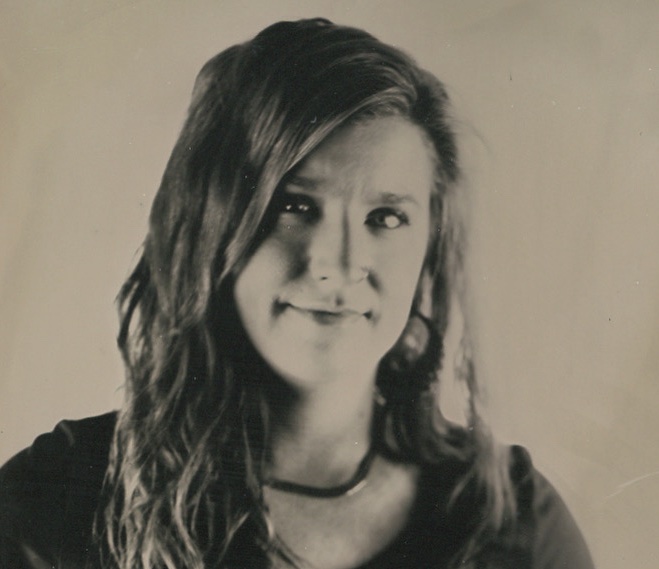
Jeanette D. Moses is a New York based filmmaker and photographer known for capturing the intimacy of New York City's creative communities. She has been freelancing for Tom's Guide since 2020. She loves shooting music, tinkering with new technology, all things analog, and learning about archaic photographic processes. She’s been photographing the music scene in New York City since 2012 and began writing about photography shortly after. In addition to Tom’s Guide, her stories have been published on Pop Photo, DP Review, Digital Photo Pro and The Phoblographer. In 2021 she was selected as one of Dr. Martens Filmmakers of the Year to direct a film about New York City's DIY music scene.
 Club Benefits
Club Benefits










